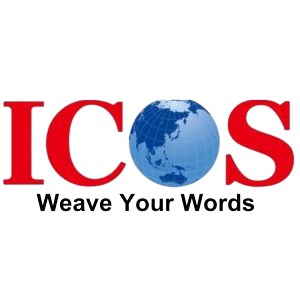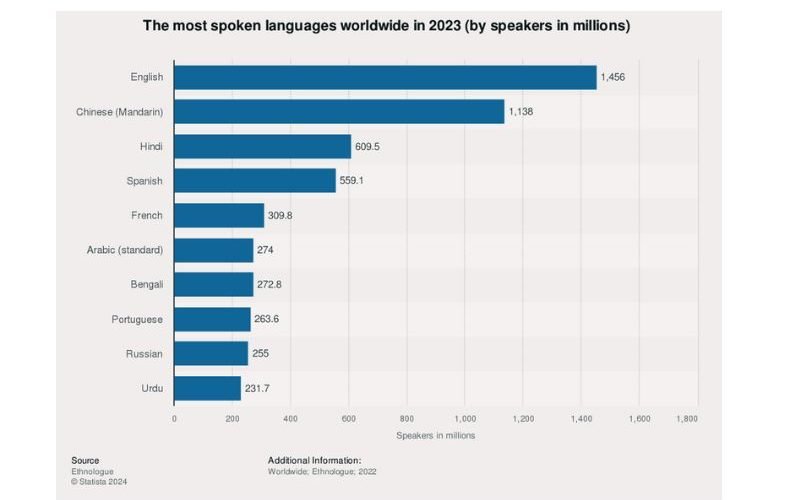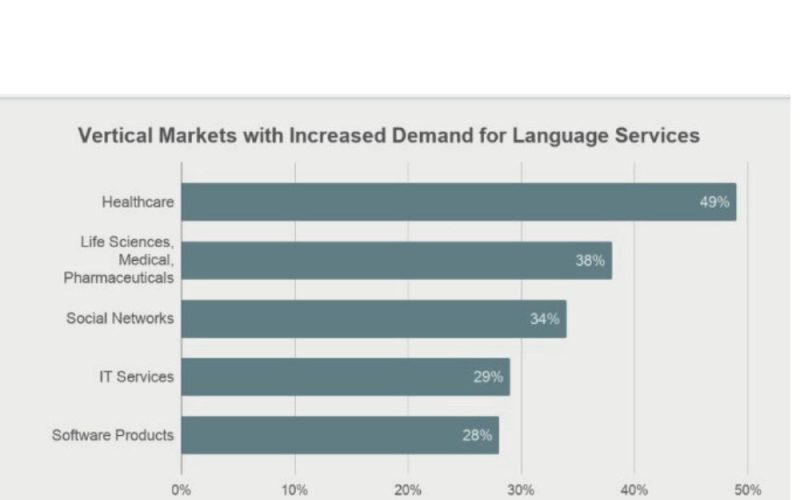From Diagnosis to Treatment: Professional Medical Translation Services for Every Step
“When it comes to saving lives, language should not be a boon”
Riya – a simple south Indian girl from rural India and Mark – a travel agency owner from the US, fell in love and got married on one of his tours to India.
They flew to the US immediately after their marriage.
Life was lovely. Mark had even started learning Telugu (Her local language), and she had started learning English (It was difficult but she tried)
2 years into the marriage and they had a baby who was diagnosed with asthma from his birth.
The doctor told them everything was under control. They just had to use a nebulizer, when the child would have an asthma attack.
For six months, their baby showed no symptoms, and the nebulizer remained untouched. It was easy to forget about the machine, and it quietly took a back seat in their lives.
But one night Riya felt something was not right with her little munchkin.
Her child was having difficulty breathing. And to worsen the situation, Mark was not around. He had gone out on one of his official trips.
Frantically, she went to fetch the Nebulizer. The machine was not mantled. She took out the instruction manual to horrifically realize- it was a language she could not read.
She was struggling to understand the instructions on the life-saving medical device for her child.
Scared, anxious, and desperate for clear guidance, she felt completely helpless.
Who could she ask for help at this hour of the night?
With no time to lose, Riya’s trembling fingers dialed 911.
As she prayed for her child’s safety, help arrived just in time, and her precious baby was treated. The relief was overwhelming, but the night left a lingering fear in her heart.
This is not an isolated incident;
It’s a stark reality that highlights the critical importance of accurate and professional medical translation services
Table of Contents
ToggleOut of the total world population which is 8,118,835,999 (as and when I write this article) and counting, only 18.8% of people speak English as their native language whereas almost 100% of the population would require medical treatments, at least once in their lifetime.
So, how can the sole mode of communication be English?
As per Statistics-
The most common language spoken worldwide is English, but there is also a huge percentage of people who speak languages other than English.
The need for professional medical translation services is genuine:
- For people to better understand medical complexities.
- For businesses to see an upsurge in profits by targeting the untapped market, where language localisation on medical transcripts, medical device manuals etc can save lives.
What are medical translation services?
The specialized process of converting medical and pharmaceutical texts from one language to another is referred to as medical translation services. This encompasses a broad spectrum of documents that are essential to the medical profession, guaranteeing that the same information is accurately communicated in multiple languages.
Medical translation is essential for:
- Exchanging medical information amongst multilingual professionals
- Translating user manuals for medical devices
- Hospital discharge documents
- Conducting medical market research surveys
- Documenting medical histories
- Publishing medical blogs and journal articles
- Developing clinical protocols and regulatory documents
Types of Materials:
Regulatory Documents: Development and registration documents for medicines and medical devices.
- Marketing Materials: Brochures and websites for advertising and marketing healthcare products and services.
According to a survey conducted by the CSA Research Institute, there is a significant increase in medical translation services by 49% in 2020, which continues to rise even in the present scenario
Why are Professional Medical Translation Services important?
There are numerous reasons why medical translation is essential, but the complexity of scientific and medical terminology is particularly significant.
Consider, for example:
A patient diagnosed with chronic obstructive pulmonary disease (COPD) necessitates long-term treatment with inhaled corticosteroids to prevent exacerbations and to manage inflammation.
The daily dosage is 200 micrograms.
Even a minor dosage error could result in severe adverse effects or inadequate treatment if translated incorrectly.
That is why it is crucial to provide adequate medical translation.
Reasons include:
- Complex Scientific and Medical Terminology: Medical language is filled with technical terms; a non-specialized translator might misinterpret them, leading to dangerous errors.
- Diverse Clinical and Scientific Specializations: Healthcare has numerous specializations with specific acronyms; accurate translation requires deep knowledge to avoid misunderstandings.
- Regulatory Requirements: Many countries require medical documents in their official language; translations must be accurate, meeting stringent scientific and linguistic standards
.
- Building Trust and Credibility: High-quality translations build trust and credibility; poor translations can damage reputations and lead to a lack of confidence from patients and healthcare professionals.
Hence, professional medical translation services like ours should be considered.
Who needs medical translation?
The following are the primary categories that depend on medical translation:
- Healthcare Providers and Patients: To ensure safe and effective treatment and plain communication across language barriers.
- Clinical Trials and Medical Research: To ensure the ethical standards and integrity of multinational investigations.
- Pharmaceutical Companies: To ensure the safe use of medications in all markets and to adhere to global regulations.
- Medical Device Manufacturers: To guarantee that the device is used correctly and complies with international regulations.
- Hospitals and Clinics: To ensure that linguistically diverse patient populations receive equitable treatment.
- Public Health Organisations: Ensure the efficient communication of vital health information to multicultural communities.
How do we help as a Medical Translation Service Provider?
The healthcare industry faces significant medical translation problems.
Complex medical terminology, cultural nuances, and the need for precise and timely translations can create serious barriers.
Mistranslation of medical terms can lead to incorrect treatments, cultural insensitivity can cause misunderstandings, and delays can impact patient care.
This is where we come in. As a global language solution provider based in Tokyo with operations in India since 2023, we specialize in overcoming these challenges.
Here’s how we help:
Comprehensive Language Solutions:
End-to-end translation services are available for all main languages, including Japanese, Chinese, Korean, German, Spanish, Arabic, French, Russian, English, and Indian.
We assist brands in establishing a robust presence in foreign markets and transitioning to a global brand.
Medical Device Translation:
Our forte is accurate translation of medical device documents. They are crucial to ensure proper usage and compliance with international regulations.
We translate user manuals, labelling, packaging, clinical trial documentation, and regulatory submissions with precision and adherence to regulatory requirements.
Expertise and Precision:
Our team of specialized medical translators combines advanced language skills with specific medical expertise.
We understand the complexity of medical terminology and ensure that every term is accurately translated to avoid potential misinterpretations that could lead to serious consequences.
Availability of Qualified Translators:
We have a robust network of qualified translators with specific training and experience in the medical field.
We can handle the complexity and specificity of medical terminology, ensuring that our translations meet the highest standards of quality and reliability.
Global Reach and Local Expertise:
With a strong presence in Tokyo and India, we leverage our global reach and local expertise to serve a diverse clientele, ensuring that language barriers do not impede access to quality healthcare.
Read here to know more about our medical device translation services
Frequently Asked Questions
Medical translation facilitates effective patient care and compliance with international regulations by guaranteeing precise communication across language barriers.
To produce accurate and dependable translations, a medical translator must possess a high level of language proficiency, a comprehensive understanding of medicine, cultural sensitivity, and diligence.
Yes, there are numerous applications, including MedTranslate and MediBabble, that are intended to assist in the translation of medical terms and phrases. However, professional translation services are advised for precise results.
Medical device translation entails the translation of documents and materials that are associated with medical devices, including user manuals, packaging, instructions for use, and regulatory submissions.
Biomedical translation accurately communicates within the biomedical field by translating scientific research, clinical trials, pharmaceutical documents, and medical literature.
Signing off:
Language barriers can be the deciding factor in critical situations, determining our survival or mortality. Count on our professional medical translation services to guarantee clear, precise communication, thereby establishing the groundwork for exceptional healthcare and saving lives worldwide.
Want to connect with our experts for professional medical translations? Click here



